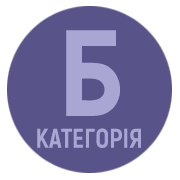THE USE OF DIGITAL TOOLS IN TEACHING A FOREIGN LANGUAGE TO FUTURE PROFESSIONALS IN INFORMATION AND EDUCATIONAL TECHNOLOGIES
DOI:
https://doi.org/10.32782/philspu/2025.10.13Keywords:
digital tools, language teaching, online education, blended learning, Kahoot, Google Classroom, Microsoft TeamsAbstract
This study offers a deep analysis of the use of digital tools in teaching foreign languages to students majoring in informationand educational technologies. The research covers both the theoretical base and practical uses of platforms like Google Classroom,Microsoft Teams, Zoom, and Kahoot for blended and fully online learning environments. Conducted as a qualitative practitioner inquiry over three academic semesters, the study monitors how these digital tools affect learner engagement, motivation, language competence, and digital literacy development. It will pinpoint to what extent blended learning models can support effective learner autonomy with individualized pacing and real-world communication skills. The current article also touches on major obstacles–digital inequality, unstable Internet access, and inadequate technical support–and highlights an important continuing need for systematic teacher training so that digital tools are utilized not just efficiently but also meaningfully from a pedagogical perspective. Results indicate that gamifiedlearning through Kahoot improves the retention of vocabulary, lowers learner anxiety, and increases participation. It underlines how important it is to align instructional goals with what technology allows. Without this alignment, there is the risk that digital tools mightbe used in a superficial way or rather ineffectively. This article concludes by making practical recommendations for educators who arewilling to create meaningful language learning experiences supported by technology. The insights below will help learners as future professionals succeed in meeting the demands of digital communication and autonomous lifelong learning. Further research should takeplace exploring how blended learning models can be adapted from one discipline to another, along with different institutional settings.
References
Tahriri, A., Danaye Tous, M. & MovahedFar, S. (2022). The Impact of Digital Storytelling on EFL Learners’ Oracy Skills and Motivation. International Journal of Applied Linguistics and English Literature, 4, 3, 144–153.
Godwin-Jones, R. (2021). New Technologies for Language Learning. Language Learning & Technology. 25(3), 6–26. https://doi.org/10125/73443.
Kumaravadivelu, B. (2012). Language Teacher Education for a Global Society. Routledge.
Garrison D.R., Vaughan N.D. (2008). Blended Learning in Higher Education: Framework, Principles and Guidelines.
Almusharraf, N., & Khahro, S. (2020). Google Classroom as a Learning Management System to Develop Teachers’ Autonomy. Education and Information Technologies, 25, 3781–3804.
Wang, A. I., & Tahir, R. (2020). The Effect of Using Kahoot! for Learning – A Literature Review. Computers & Education, 149, 103818. https://doi.org/10.1016/j.compedu.2020.103818.
Pham, N. K. T., Huynh, T., Tran, V. M. Q., Pham, N. N. P., Ho, H. T., & Nguyen, L. H. K. (2024). EFL Students’ Perceptions of E-learning Tools’ Effects on Students’ Engagement in English Speaking Skill Online Classes. AsiaCALL Online Journal, 15(1), 34–54. https://doi.org/10.54855/acoj.241513.
Wang, X.-M., Zhou, W.-Q., Hwang, G.-J., Wang, S.-M., & Huang, X.-T. (2024). The Mediating and Moderating Role of Cognitive Engagement in the Relationship between Prior Knowledge and Learning Achievement in Game-Based Learning. Educational Technology & Society, 27(4), 136–155.
Zhang, J. (2023). EFL Teachers’ Digital Literacy: The Role of Contextual Factors in Their Literacy Development. Frontiers in Psychology, 14, Article 1153339. Published July 24, 2023. https://doi.org/10.3389/fpsyg.2023.1153339.
Çakir, I., & Işik, I. (2020). Effects of Reflective Teaching Techniques on Self-Evaluation of Teachers for Further Lessons: Analysis through Diary Keeping. Focus on ELT Journal, 2(1), 20-36. https://doi.org/10.14744/felt.2020.00016.
Tai, T.-Y. (2022). Effects of Mobile Virtual Reality on the Listening Skills of EFL Learners. Language Learning & Technology, 26(1), 1–23.
Chen, L., & Rodway, C. (2021). Strategies of Language Learners at a Distance in Asynchronous and Synchronous Conditions. CALICO Journal, 38(1), 23–46.
Ahmed, A. A. A., Sayed, B. T., Wekke, I. S., Widodo, M., Rostikawati, D., Ali, M. H., Hussein, H. A. A., Azizian M. (2022). An Empirical Study on the Effects of Using Kahoot as a Game-Based Learning Tool on EFL Learners’ Vocabulary Recall and Retention. Education Research International. Article ID 9739147 http:// doi.org/10.1155/2022/9739147.
Hartono, H., Elok, W. & Choiril, A. (2023). Group Work in Zoom Breakout Rooms to Enhance English Speaking Self Efficacy for Active Learning Activities. Studies in English Language and Education, 10(1), 137–154. https://doi.org/10.24815/siele.v10i1.26021.
Yang, H., Kim, H., Lee, J., & Shin, D. (2022). Implementation of an AI Chatbot as an English Conversation Partner in EFL Speaking Classes. ReCALL, 34(3), 327–343. https://doi.org/10.1017/S0958344022000039.
Díaz-Suárez, V., Martín-Paciente, M., & Travieso-González, C. M. (2025). Impact of Digital Platforms on the Practices of Teaching Professionals: A Discussion Paper on Impressions Regarding the Development of Competence and Inclinations Toward Active Methodologies. Applied Systems Innovation, 8(3), 64. https://doi.org/10.3390/asi8030064.
Reinhardt, J. (2022). Everyday Technology Mediated Language Learning: New Opportunities and Challenges. In C. Lütge (Ed.), Foreign Language Learning in the Digital Age: Theory and Pedagogy for Developing Literacies (pp. 67–84). Routledge.








